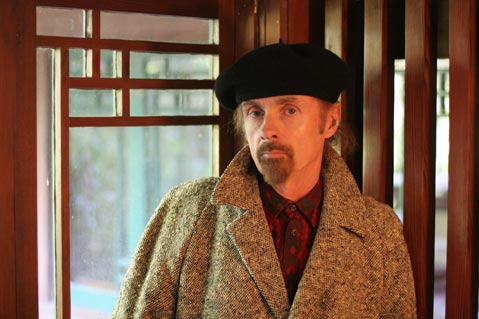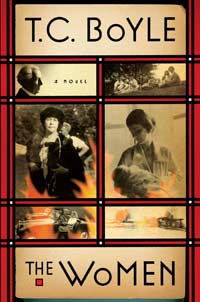T.C. Boyle’s The Women
Santa Barbara Author's New Novel about Frank Lloyd Wright and the Ladies Who Loved Him

What better way to get to know a man than through the lens of his various love affairs, and with his decidedly non-English speaking Japanese minion as your tour guide?
Confused? Welcome to the creativity-charged alternate universe of Montecito-based wordsmith T.C. Boyle. As prolific as he is ambitious, Boyle has taken just such a route of introduction in his newest novel The Women, a fact-and-fiction mashup based on the brilliant, bizarre, and often brazen life of “America’s greatest architect of all time,” Frank Lloyd Wright.

Boyle has spent the past 16 years living in and restoring Wright’s first California residence, the George C. Stewart House. With The Women, Boyle has added another chapter to his growing list of historically inspired, quasi-biographical novels about who he calls the “great megalomaniacs of the 20th century who made us what we are today.” Like Stanley McCormick in Riven Rock, Alfred Kinsey in The Inner Circle, and John Harvey Kellogg in The Road to Wellville, Wright’s life, loves, and work get the Boyle treatment in the author’s 20th book. The result is a breathing, swirling, sometimes ridiculously wide-ranging mosaic of the man and myth who dominated the society pages and gossip columns of newspapers as much as he did the world of architecture throughout the end of the 19th century and the first half of the 20th. As Boyle writes of his subject, “He needed complication”-and, luckily for the reader-such a life makes for wonderful fiction fodder. The more compelling the soap opera with which Wright surrounded himself, the better he could star in it, and in the hands of Boyle, this soap opera soars to dramatic heights.
The book is narrated by the fictional Tadashi Sato, a Japanese architect who was mentored by “Wrieto-San” for a number of years. A self-described “cog in [Wright’s] machine for a certain period, one of many cogs, that and nothing more,” Sato takes you on a truth-blurring tour of Wright, his work, and his women. And it is the women who provide the substance of the book: Kitty, the first wife and mother of six children; Olgivanna, the hard-working, no-nonsense Russian dancer and last wife; the not-so-secret lover Mamah, who, in one of the book’s most vibrant scenes, is murdered along with her children by an axe-wielding servant at Wright’s famous Wisconsin estate Taliesin; and the morphine-addicted Miriam, who comes off as perhaps the most perfectly matched of all of Wright’s love interests. Boyle unleashes his creative license as he fleshes out these women’s personalities and dares to suppose how they felt about their respective roles in Wright’s life. Further, by folding the timeframe of the narrative over itself, using a lengthy and occasionally off-putting amount of what he calls “build up,” and employing footnotes (sweet little nuggets at the bottom of the pages that often deliver the author’s trademark humor), Boyle has created a book that is oddly reminiscent of a Frank Lloyd Wright house: structured, yet creatively free, rewardingly difficult, organic, impressive, and, at the end of the day, not to everyone’s tastes.
Like so many of Boyle’s salacious, historical novels, The Women leaves the reader wondering how to feel about the intersection of a man’s questionable moral behavior and his undeniably important life’s work. Explaining in an interview last week that he believes “art stands apart from ethics of any kind,” Boyle made his feelings on the subject clear. But in crafting this elaborate, fictional vision of the life and circumstances of characters like Wright, the author sneakily demands that we decide for ourselves.
4*1*1
T.C. Boyle will be signing copies of The Women on the last stop of his nationwide book tour this Sunday, March 1, at Chaucer’s Books at 3 p.m. For more information, call 682-6787 or visit chaucersbooks.com.



